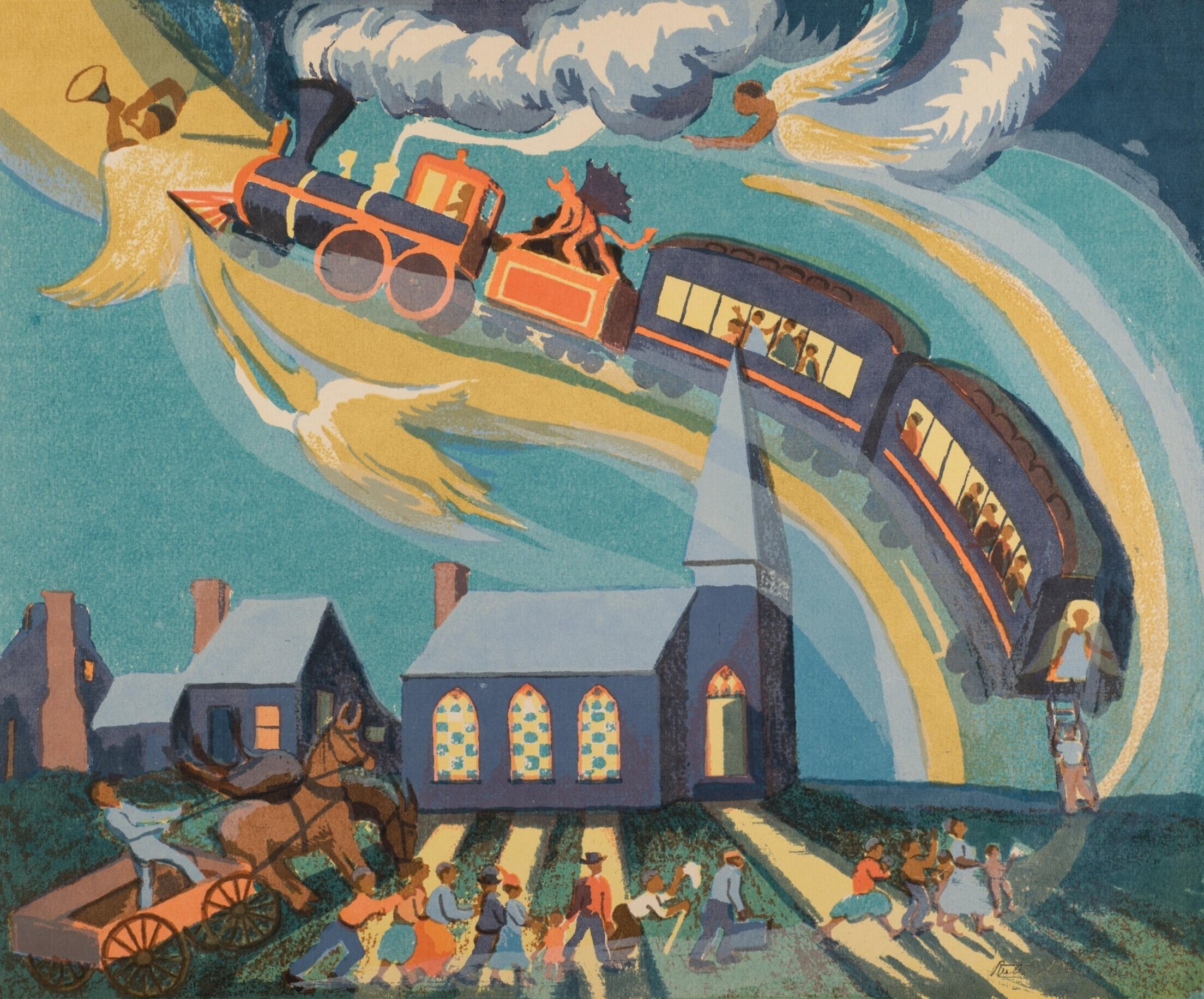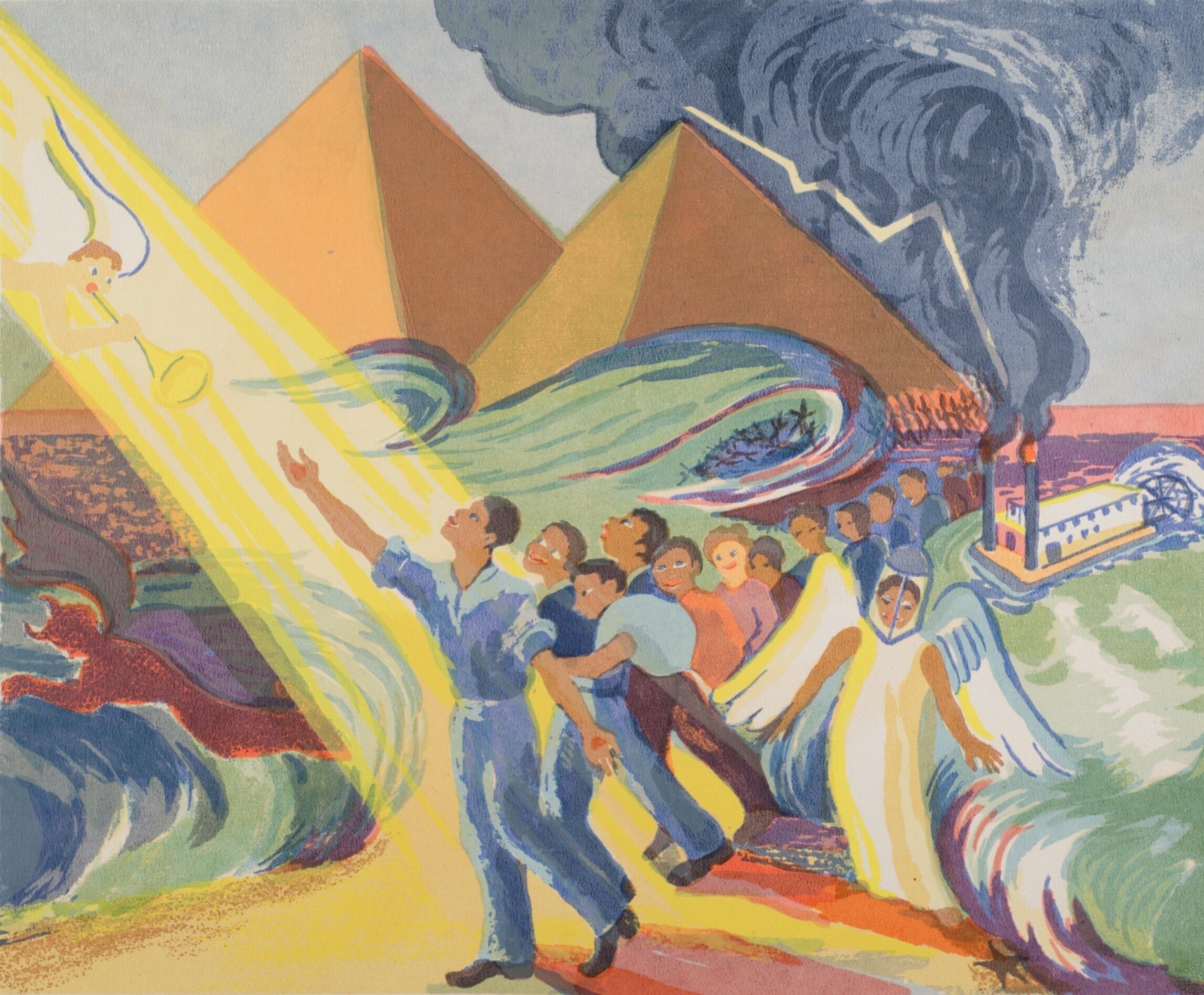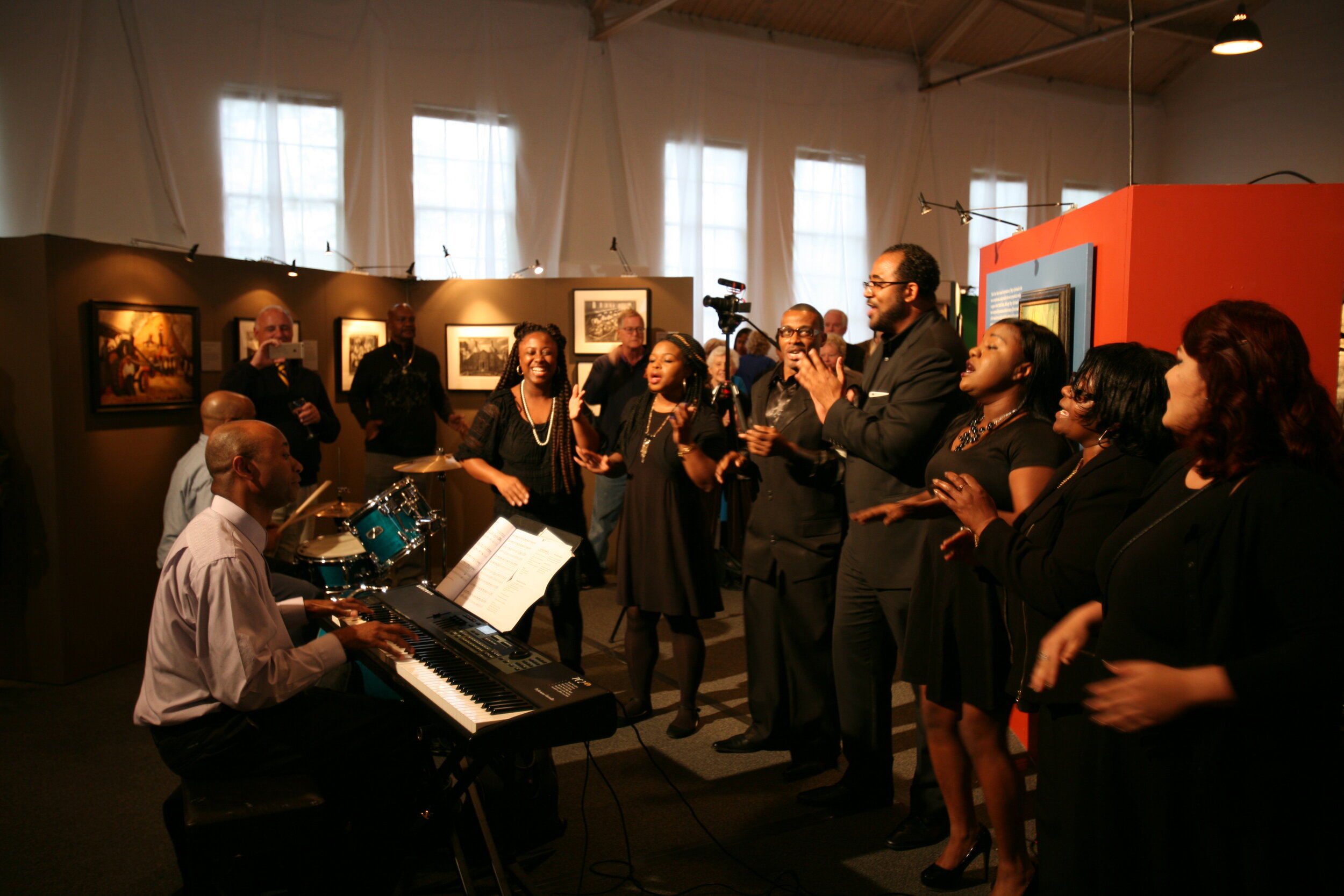
Bringing an empowering history to life, through artistic representation, written accounts, and oral histories, with a selection of songs recorded by an intergenerational choir of Marylanders.
Glory Train a.k.a. This train Is bound for glory, serigraph, 1952
Twilight quartette, oil, 1936
The Legacy of Spirituals
As enslaved and free workers, people of African descent built the country and a thriving economy. As warriors and visionaries, thinkers, and orators, many survived the death sentence of plantation work, breaking away to change the country and become Frederick Douglass, Samuel Green, and Harriet Tubman.
Their legacies are a part of Maryland’s rich oral, written, and musical history, and the Maryland Spirituals Initiative seeks to begin a global conversation about the essential role of spirituals as America’s finest art form.
Noted by W.E.B. DuBois in 1903 as music that “stirred him strangely,” spirituals or “sorrow songs,” as he called them, were becoming regarded by an international audience as the most important music in America. James Weldon Johnson and his brother composer John Rosamond Johnson regarded spirituals as America’s only folk music.
Musical Mission
The Maryland Spirituals Initiative brings an empowering history to life with a selection of songs recorded by an intergenerational choir of Marylanders. Through historical accounts and artistic representation, the music adds a beautiful dimension to this multi-disciplinary project.
When the Czech composer Antonin Dvorak journeyed to America 130 years ago, he was so struck by “Negro Spirituals” that he incorporated them into his famous New World Symphony in 1893. He wrote that so-called “American plantation songs” were by far the most striking, reminding him of the music of old Scotland and Ireland.
Ironically, these important melodies, composed locally, were recognized by Americans only on a subconscious level. The Maryland Spirituals Initiative is here to change that by presenting to the world through an on-line platform Negro spirituals as America’s most compelling and elusive art form.
The Waters Choir, Waters Church, Oxford, Maryland
There is a City Called Heaven
There is a City Called Heaven honors early African American spirituals recorded by artists, singers, and writers on Maryland’s Eastern Shore over one hundred years ago.
Welcome to our on-line platform, which includes an illustrated book for everyone interested in culture, theology, art, history, the nascent civil rights movement, and music.
“Ruth Starr Rose’s visual interpretation of Negro Spirituals is the most comprehensive, and probably the most sympathetic work yet to appear in the United States. Although Negro Spirituals have been interpreted by numerous artists in many different media of the visual arts, no single artist has approached the extensive treatment accorded by this artist to this theme.”
— Professor James A. Porter, Howard University, 1956
For more about African American life on Maryland's Eastern Shore, Please enjoy this Book.
Click on the image above to purchase the hardcover copy of the book. Click on the image to the left for a free download.

Ruth Starr Rose, Pharaoh's army got drownded, serigraph, 1942

The Armory, Easton, Maryland, May 4, 2016, Performance by Leroy “Spanky” Potter and members of the Union Baptist Church celebrating the opening of the Touring Exhibition curated by Barbara Paca, Ph.D., O.B.E., Revelations of African American Life in Maryland and the World
Maryland Spirituals Initiative
Music by Kentavius Jones, La Fleur Paysour, and John Wesley Wright
Text All Rights Reserved © Barbara Paca
ISBN 978-17923-0699-0



